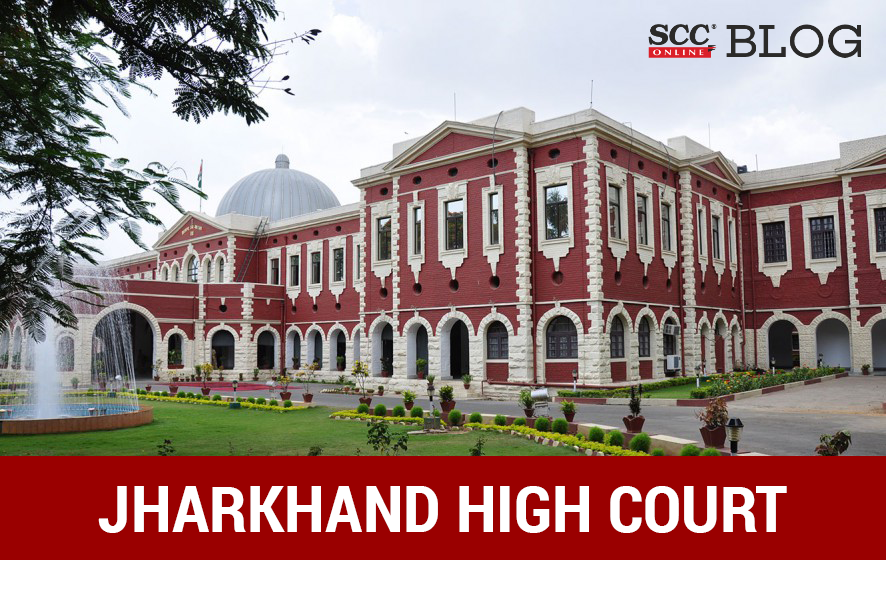Jharkhand High Court: In an appeal against the judgment of conviction and order of sentence passed by the Trial Court, the Division Bench of Sujit Narayan Prasad* and Subhash Chand, JJ. dismissed the same, relying on the witness evidence and the settled position of law. The matter pertains to appellants convicted under Section 302 read with Section 34 and Section 148 of the Penal Code, 1860 (‘IPC’) to undergo imprisonment for life and rigorous imprisonment for two years, both the sentences to run concurrently.
The accused persons attacked the informant and deceased with bombs, pistol and chhura (dagger). The police registered a criminal case under Sections 147, 148, 149, 341, 302 and 120-B of IPC and a charge sheet was submitted. The Trial Court examined the witnesses and passed the judgment of conviction, which has been appealed against in the instant matter.
The Court in this matter scrutinized the statements of witnesses and the nature of injuries incurred by the deceased. Some of the arguments based on witness statements were regarded unacceptable by the Court. For consideration of testimony of hostile witnesses, the Court referred to Mrinal Das v. State of Tripura, (2011) 9 SCC 479 wherein, the Supreme Court held that “It is settled law that corroborated part of evidence of hostile witness regarding commission of offence is admissible.”
One of the grounds of challenge by the appellants include non-examination of the Investigating Officer (‘IO’). The Court relied on Raj Kishore Jha v. State of Bihar, (2003) 11 SCC 519 and Dinesh Yadav v. State of Jharkhand, (2017) 5 SCC 764 and observed that non-examination of the IO does not always prejudice the prosecution story.
The Court also found it incorrect on the part of the appellants raising the issue that there are no material exhibits and referred to the inquest report and the seizure memo, wherein seized articles have been mentioned. Examining the nature of injuries as per the doctor’s examination, the Court did not find any error in the Trial Court’s findings against the appellant’s ground of challenge that ‘chhura can only cause penetrating wounds’.
The Bench relied on Mukesh Kumar v. State of Delhi, (2015) 17 SCC 694 and Shyamal Ghosh v. State of W.B., (2012) 7 SCC 646 and said that “some contradiction and discrepancies in the testimonies not enough to vitiate the prosecution story”. Further, it said that the mechanical rejection of testimony of witness even if the informant of the given case is the brother of the deceased, cannot be fit to be disallowed and if thoughtful consideration has been given with respect to testimony of the informant by the Trial Court, the same cannot be said to suffer from an error.
Referring to the settled principle of law for reading the entire evidence as a whole, the Court relied on several cases including Bhagwan Jagannath Markad v. State of Maharashtra, (2016) 10 SCC 537 and State of Karnataka v. Suvarnamma, (2015) 1 SCC 323.
Thus, the Court dismissed the instant appeal and held that the prosecution has been able to prove the charge beyond all shadow of doubt, which cannot be said to suffer from an error. The Court also pointed out an infirmity in the order of sentence to undergo rigorous imprisonment for the offence committed, since fine is mandatory to be inflicted along with sentence of rigorous imprisonment as provided under Section 302 of IPC. The Court modified the sentence by imposing rigorous imprisonment for life, with fine of Rs. 5,000/- to each of the appellants.
[Bhim Singh v. State of Bihar, 2023 SCC OnLine Jhar 46, judgment dated 31-01-2023]
*Judgment authored by: Justice Sujit Narayan Prasad
Advocates who appeared in this case :
For Appellants: Advocate A.N. Deo;
For State: Additional Public Prosecutor Vandana Bharti.






